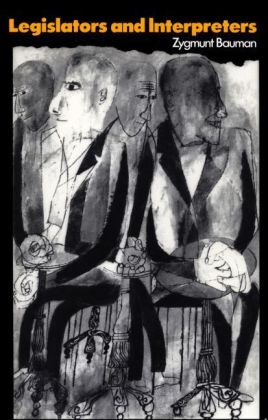Read more
Informationen zum Autor Zygmunt Bauman (1925-2017) was Professor Emeritus of Sociology at the University of Leeds. His many books have become international bestsellers and have been translated into more than thirty languages. He was awarded the Theodor W. Adorno prize for 1998. Klappentext What is the role of intellectuals in the modern world? How does intellectual work connect to modern cultural development as a whole? Bauman answers these questions through a discussion of the nature of modernism and post-modernism in the analysis of culture. During the period at which it was assumed that there were ready ways of assessing the truth of beliefs, intellectuals used to 'legislate' about opinions for the rest of the community. But today, in the period of post-modernism, there are many competing value-systems and beliefs. Intellectuals today become 'interpreters', representing different standpoints in relation to one another. In brilliant and telling fashion, Bauman draws out the implications of this change for contemporary cultural analysis. This book will be of basic interest to students and professionals in cultural studies, sociology, politics and the history of ideas. Zusammenfassung Discusses debates in which there is currently much interest (overlaps with the themes of 'Habermas and Modernity'! which has been discussed very widely indeed). The author is one of the foremost writers in social theory and cultural studies today. Develops an original argument about the position of intellectuals in the contemporary world. Inhaltsverzeichnis Introduction:. Intellectuals: From Modern Legislators to Post-modern Interpreters. 1. Paul Radin, or an Aetiology of the Intellectuals. 2. Les philosophes: The Archetype and the Utopia. 3. Sociogenesis of the Power Knowledge Syndrome. 4. Gamekeepers turned Gardeners. 5. Educating People. 6. Discovery of Culture. 7. Ideology, or Building the World of Ideas. 8. The Fall of the Legislator. 9. The Rise of the Interpreter. 10. Two Nations, Mark Two: The Seduced. 11. Two Nations, Mark Two: The Repressed. 12. Conclusions: one too many. Notes. Index. ...

